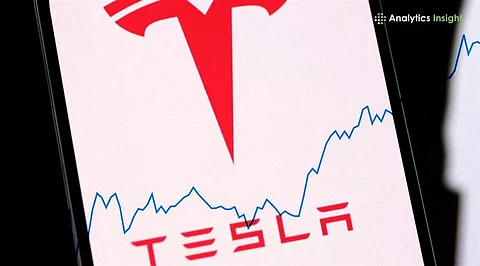The United States Senate is currently embroiled in a heated debate over President Donald Trump’s “One Big Beautiful Bill,” a sweeping legislative proposal that promises significant tax breaks. As Republicans aim to pass the bill before the upcoming Independence Day holiday, the implications for various segments of the American population are becoming increasingly clear. The Senate’s decision on this bill could have profound impacts on both the economy and individual households.
On Saturday, the Senate narrowly voted 51-49 to open debate on the latest 940-page version of the bill, despite opposition from two Republican senators who joined Democrats in opposing the motion. The Republican Party, holding 53 seats in the Senate, is pushing for a swift passage. Meanwhile, the House of Representatives, which passed an earlier version of the bill by a slim 215-214 vote on May 22, awaits the Senate’s decision to move forward with a unified legislative proposal.
Winners: High-Income Households and Traditional Automakers
The bill, if passed, would extend tax cuts initiated during Trump’s first term, primarily benefiting high-income households. According to the nonpartisan Tax Policy Center, more than a third of the total tax cuts would be allocated to households earning $460,000 or more annually. Additionally, 57 percent of the cuts would go to those with yearly incomes exceeding $217,000. On average, households could see a reduction of about $2,600 in taxes by 2026.
Furthermore, the bill proposes a permanent increase in the child tax credit to $2,200, a slight rise from the current $2,000, though less than the $2,500 suggested in the House version. This change aims to provide some relief to families with children.
Traditional car manufacturers also stand to gain, as the Senate version seeks to end the tax credit for electric vehicle (EV) purchases, which is currently worth up to $7,500. This move could potentially reduce consumer demand for EVs, thereby leveling the playing field for petrol and diesel vehicles.
Losers: Low-Income Families and EV Manufacturers
Conversely, the bill proposes significant reductions to social welfare programs, which could adversely affect low-income families. The Supplemental Nutrition Assistance Program (SNAP), commonly known as food stamps, faces a proposed cut of $68.6 billion over the next decade. In 2023, SNAP supported an average of 42.1 million people per month, highlighting the potential impact of these cuts.
Medicaid, the largest U.S. program providing healthcare to low-income individuals, is also targeted for a $930 billion reduction in federal funding by 2034. The bill introduces work requirements for able-bodied adults under 65, mandating 80 hours of work per month to continue receiving benefits, with exceptions for those with dependent children.
The elimination of the EV tax credit is another contentious point. Billionaire Elon Musk, owner of Tesla, has been vocal in his opposition, stating that the bill would “destroy millions of jobs in America and cause immense strategic harm to our country.” Musk’s criticism underscores the potential negative impact on the burgeoning EV industry.
Economic Implications and Political Reactions
Some conservatives have criticized the bill for its potential to inflate the national debt. The Congressional Budget Office (CBO) estimates that the Senate version would increase the national debt by $3.3 trillion from 2025 to 2034, compared to a $2.4 trillion increase under the House version. With the current U.S. national debt exceeding $36 trillion, these projections raise concerns about fiscal sustainability.
Despite the opposition, the bill’s supporters argue that the tax cuts will stimulate economic growth and job creation. However, the debate remains polarized, with significant political and economic stakes involved. As the Senate continues its deliberations, the outcome will not only affect the legislative landscape but also set the tone for future economic policies.
Next Steps and Potential Outcomes
If the Senate passes its version of the bill, a conference committee comprising members from both chambers will work to reconcile differences and draft a compromise bill. This unified legislation would then require approval from both the House and the Senate before being presented to President Trump for his signature.
The passage of this bill could mark a significant shift in U.S. tax policy, with long-term implications for income distribution, social welfare, and economic growth. As the nation awaits the Senate’s decision, the potential winners and losers continue to voice their concerns, highlighting the complex interplay of politics and policy in shaping America’s future.






































































